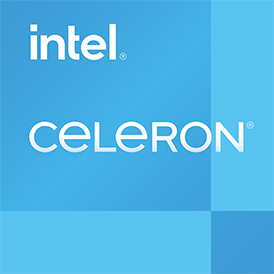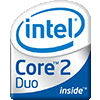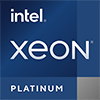
Intel Celeron 2981U Benchmark, Test and specs
Last updated:
The Intel Celeron 2981U is a 2 core processor. It can handle 2 threads simultaneously and was introduced in Q3/2013. The Intel Celeron 2981U is based on the 4. generation of the Intel Celeron series and requires a mainboard with the socket BGA 1168. The Intel Celeron 2981U scores 354 points with one CPU core in the Geekbench 5 benchmark. When using all CPU cores, the result is 694 points.

| Name: | Intel Celeron 2981U |
|---|---|
| Family: | Intel Celeron (165) |
| CPU group: | Intel Celeron 2000 (7) |
| Architecture: | Haswell U |
| Segment: | Mobile |
| Generation: | 4 |
| Predecessor: | -- |
| Successor: | -- |
CPU Cores and Base Frequency
The 2 CPU cores of the Intel Celeron 2981U clock with 1.40 GHz. The number of CPU cores and the clock frequency of the processor are largely responsible for the overall performance.
| CPU Cores / Threads: | 2 / 2 |
|---|---|
| Core architecture: | normal |
| Cores: | 2x |
| Hyperthreading / SMT: | No |
|---|---|
| Overclocking: | No |
| Frequency: | 1.40 GHz |
| Turbo Frequency (1 Core): | -- |
| Turbo Frequency (2 Cores): | -- |
Internal Graphics
With the Intel HD Graphics (Haswell GT1), the Intel Celeron 2981U has an build in graphic solution. It has 10 SM processors, which have a total of 80 texture shaders. The iGPU not only enables games, but also significantly accelerates video playback.
| GPU name: | Intel HD Graphics (Haswell GT1) |
|---|---|
| GPU frequency: | 0.20 GHz |
| GPU (Turbo): | 1.00 GHz |
| Compute units: | 10 |
| Shader: | 80 |
| Hardware Raytracing: | No |
| Release date: | Q4/2012 |
| Max. displays: | 3 |
|---|---|
| Generation: | 7.5 |
| Direct X: | 11.1 |
| Technology: | 22 nm |
| Max. GPU Memory: | 2 GB |
| Frame Generation: | No |
Hardware codec support
Processors that have an integrated graphics can play videos faster and more efficiently. This can have a positive effect on the battery life of notebooks, for example.
| h265 / HEVC (8 bit): | No |
|---|---|
| h265 / HEVC (10 bit): | No |
| h264: | Decode / Encode |
| VP8: | No |
| VP9: | No |
| AV1: | No |
|---|---|
| AVC: | Decode / Encode |
| VC-1: | Decode |
| JPEG: | Decode |
Memory & PCIeThe Intel Celeron 2981U supports up to 16 GB memory in up to 2 (Dual Channel) memory channels. This results in a maximum memory bandwidth of 25.6 GB/s. |
|
| Memory type: | Memory bandwidth: |
|---|---|
| LPDDR3-1600 DDR3L-1600 | 25.6 GB/s 25.6 GB/s |
| Max. Memory: | 16 GB |
| Memory channels: | 2 (Dual Channel) |
| ECC: | No |
| PCIe: | 2.0 x 12 |
| PCIe Bandwidth: | 6.0 GB/s |
Thermal ManagementWith the TDP, the processor manufacturer specifies the cooling solution required for the processor. The Intel Celeron 2981U has a TDP of 15 W. |
|
|---|---|
| TDP (PL1 / PBP): | 15 W |
| TDP (PL2): | -- |
| TDP up: | -- |
| TDP down: | -- |
| Tjunction max.: | 100 °C |
Technical details
The Intel Celeron 2981U has a 2.00 MB large cache. The processor is manufactured in 22 nm. Modern production increases the efficiency of the processor.
| Technology: | 22 nm |
|---|---|
| Chip design: | Monolithic |
| Socket: | BGA 1168 |
| L2-Cache: | -- |
| L3-Cache: | 2.00 MB |
| AES-NI: | Yes |
| Operating systems: | Windows 10, Linux |
| Virtualization: | VT-x, VT-x EPT, VT-d |
|---|---|
| Instruction set (ISA): | x86-64 (64 bit) |
| ISA extensions: | SSE4.1, SSE4.2 |
| Release date: | Q3/2013 |
| Release price: | -- |
| Part Number: | -- |
| Documents: | Technical data sheet |
Rate this processor
Benchmark results

The benchmark results for the Intel Celeron 2981U have been carefully checked by us. We only publish benchmark results that have been created by us or that have been submitted by a visitor and then checked by a team member. All results are based on and fullfill our benchmark guidelines.
Geekbench 5, 64bit (Single-Core)
Geekbench 5 is a cross plattform benchmark that heavily uses the systems memory. A fast memory will push the result a lot. The single-core test only uses one CPU core, the amount of cores or hyperthreading ability doesn't count.

|
AMD A10-4600M
4C 4T @ 3.20 GHz |
||

|
AMD A9-9420e
2C 2T @ 2.70 GHz |
||

|
Intel Celeron E3400
2C 2T @ 2.60 GHz |
||
|
|
Intel Celeron 2981U
2C 2T @ 1.40 GHz |
||

|
Intel Celeron 2980U
2C 2T @ 1.40 GHz |
||

|
AMD Phenom II X4 925
4C 4T @ 2.80 GHz |
||

|
AMD A8-3820
4C 4T @ 2.80 GHz |
||
Geekbench 5, 64bit (Multi-Core)
Geekbench 5 is a cross plattform benchmark that heavily uses the systems memory. A fast memory will push the result a lot. The multi-core test involves all CPU cores and taks a big advantage of hyperthreading.

|
AMD Athlon II X2 220
2C 2T @ 2.80 GHz |
||

|
Intel Atom E3845
4C 4T @ 1.91 GHz |
||

|
Intel Pentium 2117U
2C 2T @ 1.80 GHz |
||
|
|
Intel Celeron 2981U
2C 2T @ 1.40 GHz |
||

|
AMD A8-7150B
4C 4T @ 2.50 GHz |
||

|
Intel Celeron 2980U
2C 2T @ 1.40 GHz |
||

|
MediaTek Helio X10
8C 8T @ 2.00 GHz |
||
iGPU - FP32 Performance (Single-precision GFLOPS)
The theoretical computing performance of the internal graphics unit of the processor with simple accuracy (32 bit) in GFLOPS. GFLOPS indicates how many billion floating point operations the iGPU can perform per second.

|
Intel Core i7-2610UE
Intel HD Graphics 3000 @ 0.85 GHz |
||

|
Intel Pentium 3825U
Intel HD Graphics (Broadwell GT1) @ 0.85 GHz |
||

|
AMD A4-4355M
AMD Radeon HD 7400G @ 0.42 GHz |
||
|
|
Intel Celeron 2981U
Intel HD Graphics (Haswell GT1) @ 1.00 GHz |
||

|
Intel Pentium 3556U
Intel HD Graphics (Haswell GT1) @ 1.00 GHz |
||

|
Intel Pentium 3558U
Intel HD Graphics (Haswell GT1) @ 1.00 GHz |
||

|
Intel Celeron 2957U
Intel HD Graphics (Haswell GT1) @ 1.00 GHz |
||
Estimated results for PassMark CPU Mark
Some of the CPUs listed below have been benchmarked by CPU-monkey. However the majority of CPUs have not been tested and the results have been estimated by a CPU-monkey’s secret proprietary formula. As such they do not accurately reflect the actual Passmark CPU mark values and are not endorsed by PassMark Software Pty Ltd.

|
Intel Core2 Duo E8190
2C 2T @ 2.66 GHz |
||

|
Intel Pentium B960
2C 2T @ 2.20 GHz |
||

|
AMD Athlon II X2 220
2C 2T @ 2.80 GHz |
||
|
|
Intel Celeron 2981U
2C 2T @ 1.40 GHz |
||

|
Intel Celeron 2980U
2C 2T @ 1.40 GHz |
||

|
MediaTek MT6750
8C 8T @ 1.50 GHz |
||

|
Qualcomm Snapdragon 430
8C 8T @ 1.40 GHz |
||
Cinebench R15 (Single-Core)
Cinebench R15 is the successor of Cinebench 11.5 and is also based on the Cinema 4 Suite. Cinema 4 is a worldwide used software to create 3D forms. The single-core test only uses one CPU core, the amount of cores or hyperthreading ability doesn't count.

|
AMD A10-7850K
4C 4T @ 4.00 GHz |
||

|
Intel Core i3-3217U
2C 4T @ 1.80 GHz |
||

|
Intel Pentium 4405Y
2C 4T @ 1.50 GHz |
||
|
|
Intel Celeron 2981U
2C 2T @ 1.40 GHz |
||

|
AMD A9-9410
2C 2T @ 3.50 GHz |
||

|
Intel Celeron 2980U
2C 2T @ 1.40 GHz |
||

|
AMD Phenom II X4 900e
4C 4T @ 2.40 GHz |
||
Cinebench R15 (Multi-Core)
Cinebench R15 is the successor of Cinebench 11.5 and is also based on the Cinema 4 Suite. Cinema 4 is a worldwide used software to create 3D forms. The multi-core test involves all CPU cores and taks a big advantage of hyperthreading.

|
AMD Athlon II X2 340
2C 2T @ 3.60 GHz |
||

|
Intel Celeron N3150
4C 4T @ 2.08 GHz |
||

|
AMD A4-3400
2C 2T @ 2.70 GHz |
||
|
|
Intel Celeron 2981U
2C 2T @ 1.40 GHz |
||

|
Intel Atom x7-E3950
4C 4T @ 1.60 GHz |
||

|
Intel Celeron 2980U
2C 2T @ 1.40 GHz |
||

|
AMD Athlon 5150
4C 4T @ 1.60 GHz |
||
Benchmarks

Geekbench 5 (SC)
2,488 entries
2,488 entries

Geekbench 5 (MC)
2,461 entries
2,461 entries

FP32 SP (iGPU)
2,042 entries
2,042 entries

PassMark CPU-Mark
2,392 entries
2,392 entries

Cinebench R15 (SC)
1,106 entries
1,106 entries

Cinebench R15 (MC)
1,101 entries
1,101 entries

Geekbench 3 (SC)
942 entries
942 entries

Geekbench 3 (MC)
938 entries
938 entries

Cinebench R11.5 (SC)
825 entries
825 entries

Cinebench R11.5 (MC)
836 entries
836 entries

Cinebench R11.5 iGPU
383 entries
383 entries
Popular comparisons
back to index








